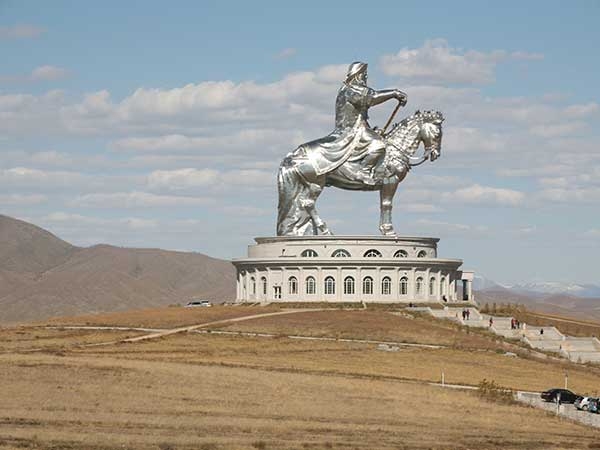Department of Mongolian Studies and Tibetology
The Head of the Department: Smirnova Maria O.
Languages taught:
- Mongolian (Modern, Old Written), Tibetan (Modern, Classical), Oirat
Courses:
- Introduction to Mongolian Philology
- Introduction to Mongolian History
- Introduction to Tibetan History
- Geography of Central Asia
- Ancient History of Central Asia
- History of Central Asia
- Culture and Ethnography of Mongolia
- Culture and Ethnography of Tibet
- Medieval Mongolian Literature
- History of Mongolian Literature
- History of Tibetan Literature
- Theoretical Grammar of the Mongolian Language
- Socio-Political System and Economics of Mongolia
- Socio-Political System and Economics of Tibet
- Historiography and Sources for the History of Mongolia
- Historiography and Sources for the History of Tibet
- History of Oriental Ideological Teachings
- Mongolian Textology
- Mongolian Sources
- Buddhism in Tibet and Mongolia
- Central Asian Art
- Comparative Historical Grammar of Mongolian languages
- Tibetan Grammatical Terminology
- Tibetan Traditional Grammar
- Mongolian Didactic Literature
- Semantics of Mongolian Verb
- Aspectology of Mongolian Verb
- Tibetan Morphology
- Mongolian Scientific Texts
- Tibetan Religious Texts
The Department of Mongolian Studies and Tibetology is one of the oldest at the Faculty of Asian and African Studies of St. Petersburg University. It was founded at Kazan University as early as in 1833. The first head of the Department was O. M. Kovalevsky (1800/1801-1878), a distinguished orientalist and corresponding member of the Russian Academy of Sciences. After the opening of the Oriental Faculty at St. Petersburg University in 1855, the Department of the Mongolian and Kalmyk Languages was part of the Mongolian-Kalmyk-Manchurian Division. The first chair was A. V. Popov (1808-1865), who had previously been a professor at the Department of Kalmyk Philology at Kazan University.
Among the faculty were such distinguished specialists in Mongolian studies as K. F. Golstunsky, G. Gomboev, A. M. Pozdneev, V. L. Kotvich, A. D. Rudnev, B. Ya. Vladimirtsov, N. N. Poppe, A. V. Burdukov, K. M. Cheremisov, Ts. Zh. Zhamtsarano, B. Baradiyn. Their numerous books are regarded as classic works in the field of Mongolian studies both in Russia and internationally. The collection of manuscripts and woodcuts in Mongolian and Tibet that they accumulated in 19th-early 20th centuries is the pride of the Oriental Section of the Gorky Scientific Library at St. Petersburg State University.
In the period after the Second World War, among the faculty were Academician S. A. Kozin, T. A. Burdukova, D. A. Alekseev, L. S. Puchkovsky, B. I. Kuznetsov, Z. K. Kasyanenko, and E. A. Kuzmenkov.
In 2008 the Department was reformed as the Department of Mongolian Studies and Tibetology.
The current academic staff are: K. V. Aleskeev, M. P. Petrova, A. V. Popov, M. O. Smirnova, V. L. Uspensky, N. S. Yakhontova, and Yu. I. Yelikhina.
The academic staff of the Department of Mongolian Studies and Tibetology have merited recognition as experts in such areas of Oriental studies as medieval and modern Mongolian and Tibetan literature, history and historiography of Mongolia, literature of Tibetan Buddhism, and linguistics. Many eminent specialists in Mongolian studies and Tibetology who work in St. Petersburg, Moscow, Kalmykia, Buryatia, and Tuva are alumni of the Department.











